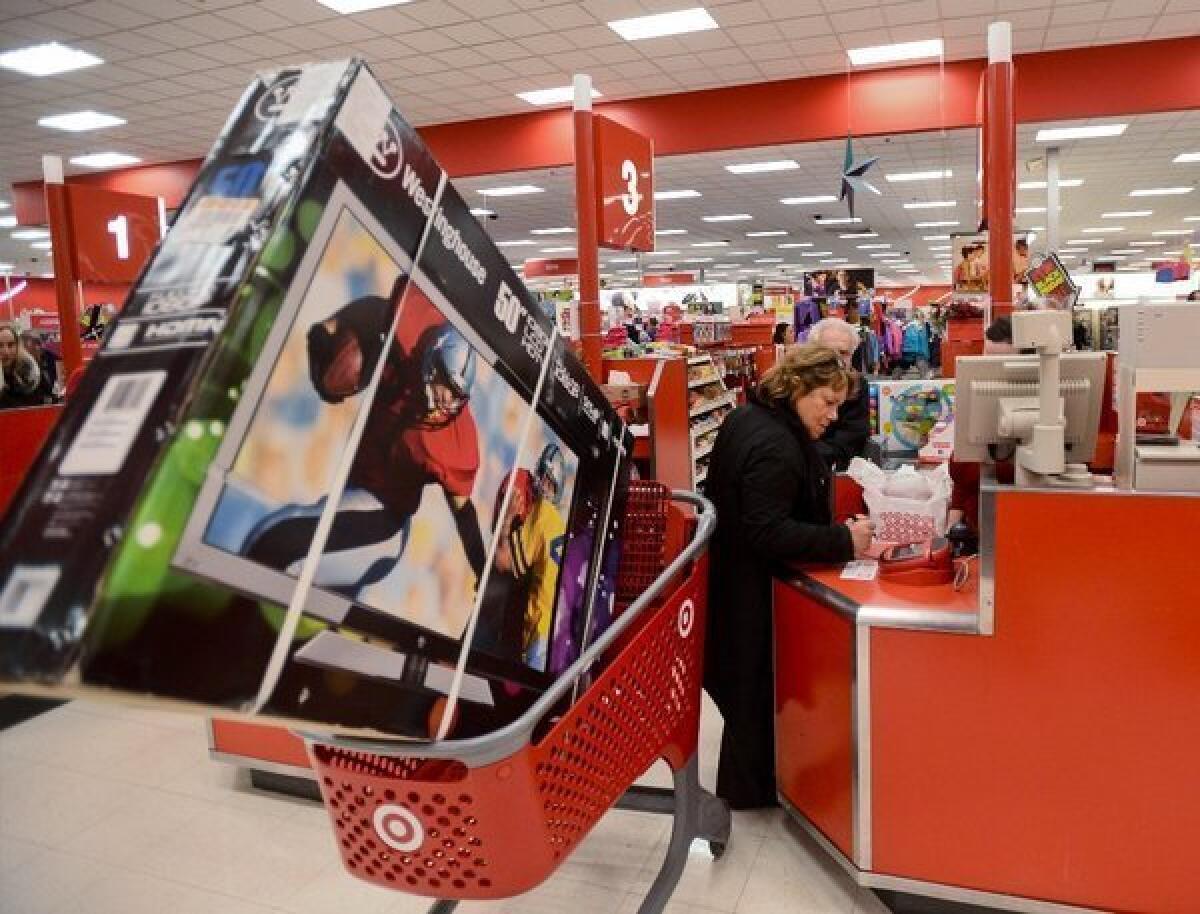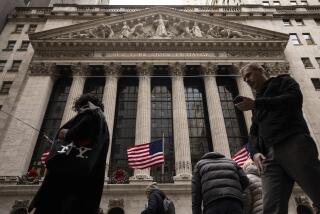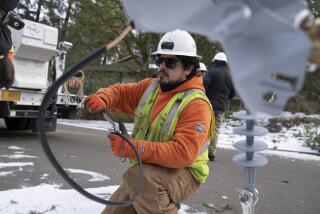Economists see mediocre growth in 2013

WASHINGTON -- Most forecasters are looking at 2013 as being another mediocre year for the economy, but many appear hopeful that growth will accelerate as the year progresses.
Beyond that broad outline, the outlook for next year is muddled. The range of economic growth projections is about as wide as it’s ever been, reflecting the great fiscal haze hanging over the nation.
In its year-end survey released Monday, the National Assn. for Business Economics said the consensus view from its panel of forecasters shows gross domestic product expanding next year at an average annual growth rate of 2.1%. That’s little changed from the modest 2.2% pace this year.
And don’t expect the unemployment rate to budge. Most of these 48 professional economists see the jobless rate averaging 7.7% in 2013 -- exactly where it stands now.
These numbers represent the consensus or median, which means half the experts are predicting GDP will grow stronger than 2.1% next year and half less than that. But what’s striking about this year’s survey results are the varying views from these economists, who work at companies, universities and government.
Although they predict GDP to grow at a median rate of 2.4% in the fourth quarter of 2013 over the same period in 2012, five of the forecasters on the panel think growth will come in at 3.6%, while another five expect the increase to be a mere 1.3%.
The top and bottom range of forecasts for job growth is just as stark. Some see the nation adding on average 300,000 jobs a month in the second half of next year, but the pessimistic five believe payrolls will rise by no more than 125,000 a month in that period.
“It just shows there’s a lot of uncertainty among economists,” said Nayantara Hensel, chair of the association’s outlook survey and professor of industry and business at National Defense University.
Much of that uncertainty, of course, is over the looming “fiscal cliff” -- deep federal budgets cuts and tax hikes that would take effect at the start of next year unless the White House and congressional Republicans can agree on how to avert the fall.
Progress in the talks has been slow since the survey was taken in the second half of November. So it’s unlikely these economists’ views have changed much since then.
At that time, most of the forecasters were betting that big chunks of the tax hikes would take place. Three-quarters of the panelists figured the payroll tax cut would expire at year-end, which would slice an average worker’s take-home pay by about $1,000 over the full year. What’s more, most don’t expect the federal income tax cuts made a decade ago to survive, either.
On top of that, many of these economists see things in Europe getting worse, and they think that growth in U.S. corporate after-tax profits will dip to 5% in 2013 from 8.5% this year. Further improvement in the American housing market is one of the few things looking up for the recovery.
All of which raises the question: Are even these mediocre economic growth projections too optimistic?
Hensel thinks so. She points out that concerns and uncertainty over the fiscal cliff already have taken a big bite out of business investments and are weighing on consumers as well, especially those who work in government.
“It’s not clear what’s coming in the new year,” she said. “Is there going to be a furlough? Are government funds not going to be cut? We don’t know.” She added: “Personally, I believe we’re going to have a recession.”
ALSO:
Fed to tie interest rate to job gains
Consumer confidence falls sharply amid ‘fiscal cliff’ worries
Big-company CEOs cautious about growth because of ‘fiscal cliff’
More to Read
Inside the business of entertainment
The Wide Shot brings you news, analysis and insights on everything from streaming wars to production — and what it all means for the future.
You may occasionally receive promotional content from the Los Angeles Times.











